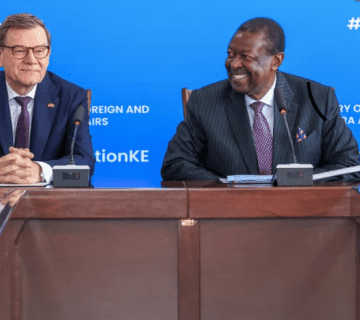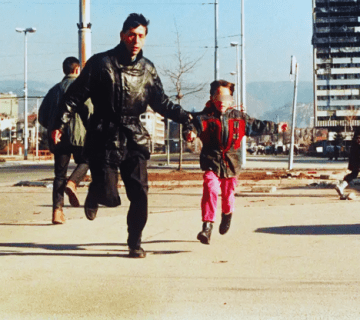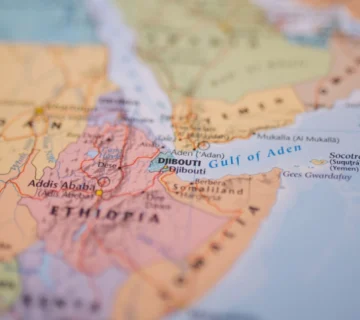In the Horn of Africa region, 2023 is likely to be a miserable year. The region offers high promise in terms of natural wealth and being of strategic interest mainly to extra-continental forces, but also suffers multiple conflicts within each, and across, member states. Although it hosts the African Union in Addis Ababa and Intergovernmental Authority on Development (IGAD) in Djibouti, institutions that should promote regional peace and economic development, it enjoys neither peace nor substantive development mainly due to three factors. First are the rivalries, envies, and competitions within each country and across the countries. With governments having problems of acceptability by those who live in the given states, internal frictions have become transnationalized to the neighbouring states. Second, is the existence of uncontrollable entities that de-border states such as terrorism, global institutions, and technology that do not respect African state borders. Few states, if any, have the capacity to defend themselves against such forces. The third is the region’s over-dependency on extra-continental powers. Countries repeatedly fail to remit their dues to regional bodies which then end up begging for ‘aid’ from extra-continental donors or ‘development partners’. The dependency and begging give geopolitical leverage to predators to perpetuate and seemingly thrive in ensuring regional instability in the Horn.
Somalia is one of the countries in which all three factors converge. Its fragmentation into feuding and autonomous warlord-led territories encourages al Shabaab terror organization to continue as an alternative, though unofficial, government. A symbiotic relationship seemingly exists between the well-organized terror group and the Somali state. It, with some external support, is unlikely to stop its destabilizing attacks on internal institutions and on neighbouring countries like Kenya. Instability in Somalia attracts extra-continental forces that turn the state into a proxy to advance such conflicting geopolitical interests as maritime oil and gas border claims. The predators have established military-related bases in Somalia supposedly to train Somali defence forces but their conflicting philosophies end up confusing the Somalis. This confusion encourages the terror organization to remain a regional force that renders Somalia unproductive and a subsequent ‘object’ of geopolitical pity. As a result, aid-dependent war-torn Ukraine purportedly donates food to equally aid-dependent war-ravaged Somalia which supposedly elevates Ukraine’s image among African states that are sceptical about the fighting in Ukraine.
Somalia’s neighbours also have serious problems. Tiny Djibouti is a virtual colony of external powers partly due to its geostrategic location at the maritime joining point of the Red Sea and the Indian Ocean which attracts geopolitical predators to set up competing military installations. As the IGAD headquarters, its effectiveness as a promoter of regional peace and stability is limited by IGAD’s dependency on such external organs as the European Union. Eritrea, on the Red Sea, is equally tiny in land size but it reportedly has links with Al Shabaab and thrives on trying to become a regional power by organizing Somalia and Ethiopia. Its leader, Isaias Afwerki, is unlikely to change his reputation of being regionally uncooperative on security and IGAD-related matters.
While Eritrea has little, if any, dependence on Kenya, Ethiopia is a different story since it not only has a border with Kenya, the two countries have sentimental attachments to each other. In colonial days, Ethiopia was a source of inspiration for Pan-Africanist resistance to imperialism. It has since declined into being a place of refugee-generating wars, famine, and an object of global pity. Its current leader, Ahmed Abiy, started well as a peacemaker and even received a Nobel Peace Prize for ending a war with Eritrea only to be betrayed by his own grandiose national and regional ambitions, no matter how well-meaning in his perspective such dreams might have been. In the region, the ‘Tripartite’ project with Afewrki and Farmajo was viewed as a geopolitical anti-Kenya outfit. Some of his internal political reforms were seen as a power-monopolizing adventure, similar to that of Afwerki and Farmaajo, which plunged his country into an internal war with Tigray which Kenya helped to settle. Despite the warmer relations, there is doubt he has renounced the imperial dream of reaching the Indian Ocean. He might, however, give full support to the LAPSSET project to give Ethiopia access to the Indian Ocean through Lamu without having to push Kenya out of Jubbaland in Somalia. In addition, Ethiopia still has scores to settle with Egypt over the River Nile and the construction of the Grand Renaissance Dam.
The Nile is a source of friction in the region and is likely to continue being so. The friction goes back to the British control of the entire Nile Valley from Egypt southwards to the Great Lakes. It grabbed the huge territory in order to keep other European powers away from the Nile in order, theoretically, to protect its interests in India by making Egypt its most important post. Protecting their interests in Egypt as a way of protecting India made British officials in various colonies enter into a treaty with themselves in 1929 thereby giving Egypt a monopoly on the use of the Nile. British officials ignored Ethiopian interests and also sacrificed the interests of other Nile-connected colonies. When the British left, Egypt and Sudan cut a deal and continued to ignore Ethiopia and new post-colonial countries around the Great Lakes that had not been party to the ‘treaty’. Since the issue of the ‘Nile Treaty’ has not been settled let alone resolved, it will continue to be a source of bad blood among the states in the region.
Sudan and South Sudan are among those states with interests in the Nile but both face other serious challenges that appear to make the Nile ignorable. The challenges are mostly internal stability as governments have problems with acceptability. The creation of South Sudan from Sudan was mainly an IGAD undertaking that Kenya spearheaded. Since independence for South Sudan was the main objective, there was little thought on the possible negative aftermath of success. General Lazarus Sumbeiyo, the Kenyan mediator, regrets not having had the services of a think tank as he waded through the complexities of convincing both sides to agree. A think tank, he believes, might have alerted him to likely post-conflict huddles that he could have addressed as part of peacemaking and country creation. The consequence of failure to think of the consequences is that South Sudan is deep in instability as warlords go at each other over power sharing and probably looting of South Sudanese coffers. It remains to be seen whether the admission of South Sudan into the East African Community will reduce South Sudanese tendencies to generate two types of refugees, the elite who luxuriously live in Nairobi and Kampala and the others who live in refugee camps.
The Horn region, therefore, is likely to experience rough times in 2023 despite its resources. It will continue to suffer multiple conflicts that are both internally and externally generated which then test the competence of the various ‘leaders’. Being strategic to competing geopolitical forces, its ability to fend off external challenges is likely to be diminished due to increased public refusal to accept a given state partly because of internal and regional rivalries. Trans-nationalization of conflicts, starting in one country and then spilling over the border, is likely to perpetuate regional instability. The inability to meet obligations will intensify the ‘pity’ image thereby enabling geopolitical predators to dictate to countries in the region. A possible way out, however, exists in enabling think tanks like the Horn Institute to think of possible consequences to evolving and future changes. The problem is that states that rely on ‘development partners’ for budgetary support to meet basic domestic obligations might not be inclined to encourage local think tanks to think about regional interests.
Prof. Macharia Munene is an Associate Fellow, Diplomacy, Geopolitics, and Foreign Relations at the HORN Institute
Photo: Sudanese protest against the military in Sudan in October 2021 (Photo Credit: EPA, via Shutterstock)
The contents of this article are copyright of © The HORN Institute 2022. All rights reserved. Any redistribution or reproduction of part or all of the contents in any form and for whatever reason is prohibited. You may use the content of this article for personal reasons, but acknowledge the author and cite the website as sources of the material.



